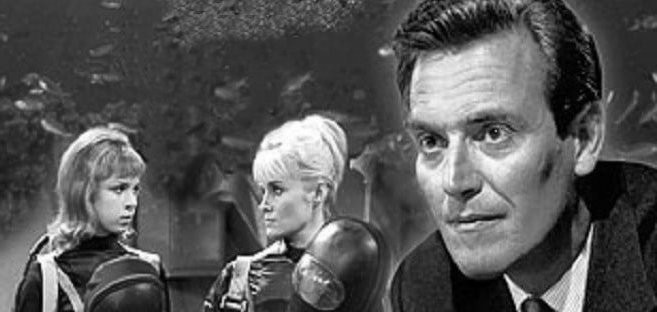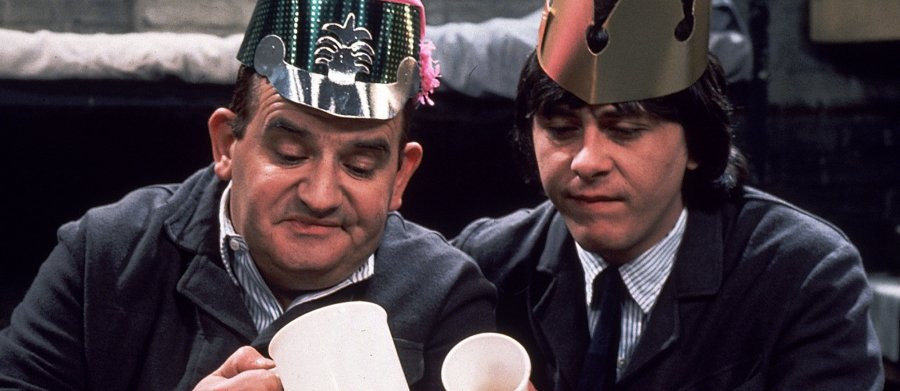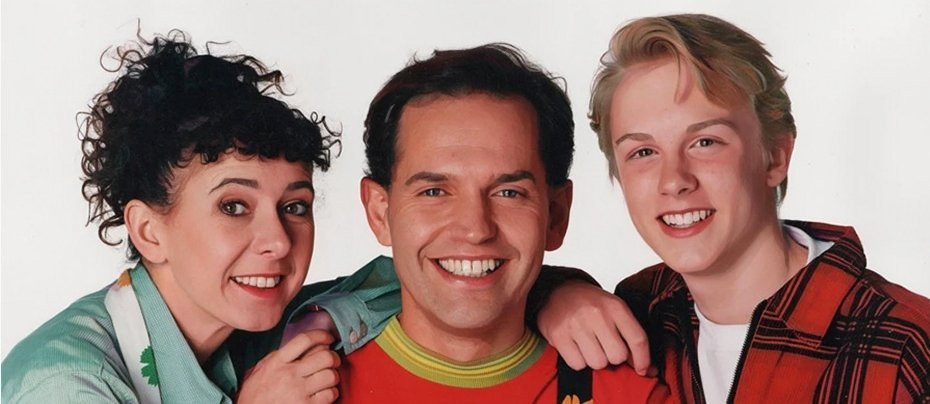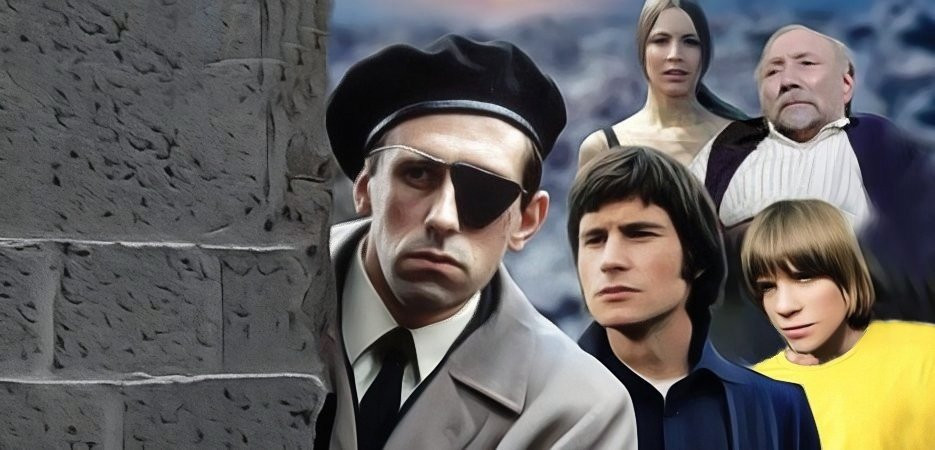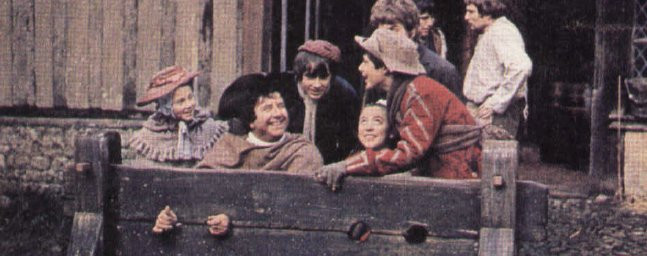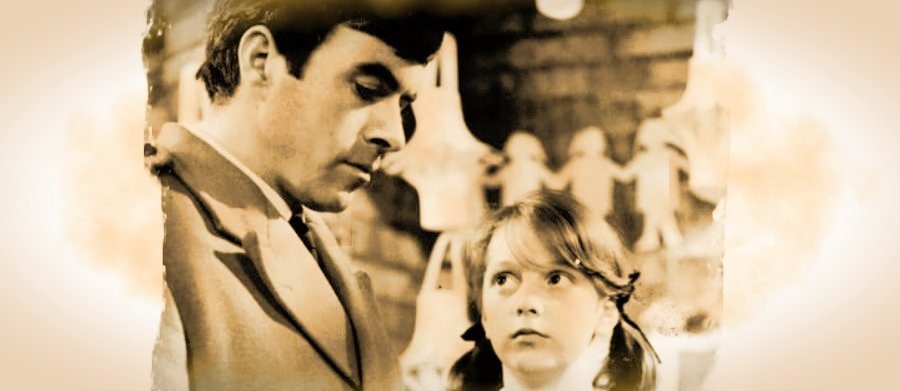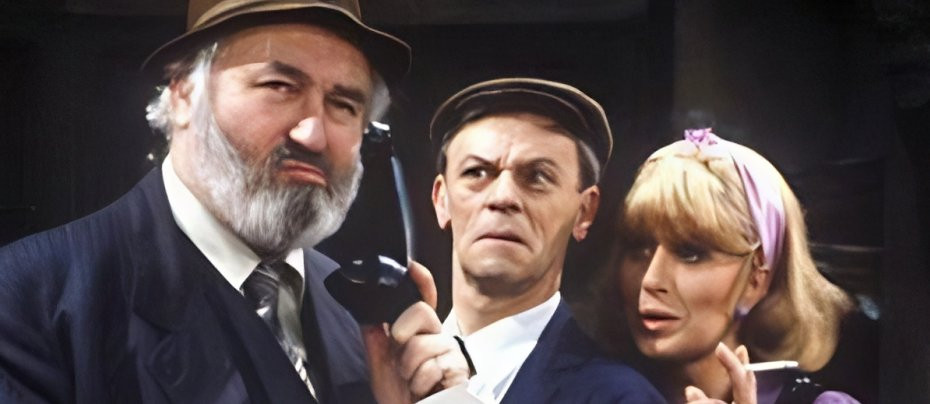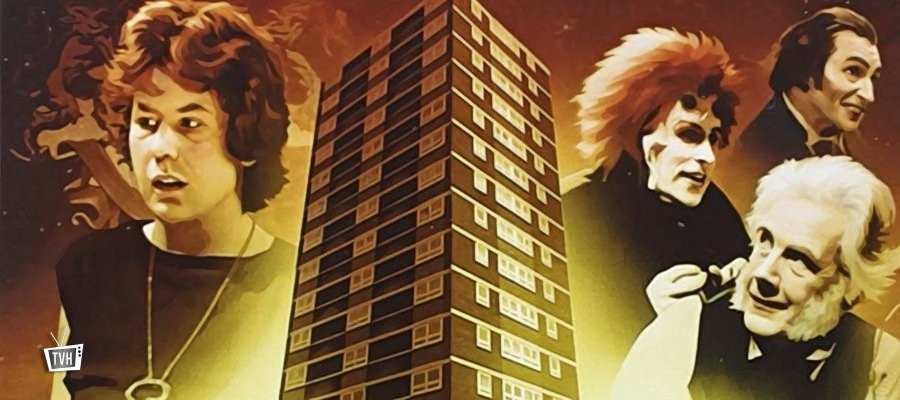
King of the Castle
1977 - United KingdomWhen HTV’s King of the Castle finally aired in 1977, it arrived not as a standard children's serial, but as something altogether darker, weirder, and more ambitious. Intended originally for children's television but ultimately deemed “too scary” for young viewers to watch alone, the series found its home in the Sunday teatime slot, and for good reason. It’s a show that defies easy categorization—part psychological drama, part gothic fantasy, part social commentary—and still stands as one of British television’s most audacious experiments of the decade.
At its centre is Roland Wright (Philip Da Costa), a shy, sensitive teenager struggling to find his place in a bleak world of bullying, parental neglect, and institutional pressure. When Roland escapes into a broken lift during a confrontation with local thugs, he plummets into the depths of his subconscious—represented as a surreal, Kafkaesque labyrinth populated by nightmarish versions of those in his real life. What unfolds is a disorienting, haunting dreamscape where Roland must confront the distortions of his fears, insecurities, and relationships.
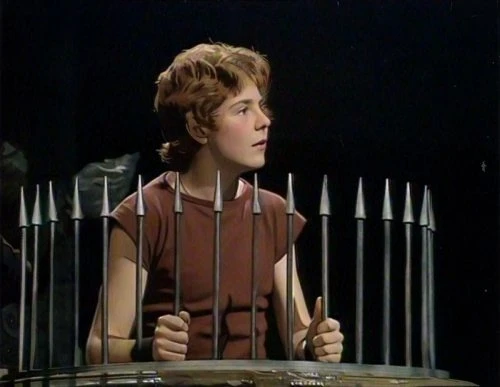
The genius of King of the Castle lies in its bold use of allegory. Everyone in Roland’s life returns in twisted form: his headmaster Spurgeon becomes Hawkspur, a deranged scientist obsessed with perfection and Roland’s voice; the building concierge Vine is reborn as Vein, a cryptic, ghostly gatekeeper who may or may not be a friend; and Roland’s distant father, now the Lord of the Castle, remains as emotionally unavailable in fantasy as he is in reality. Even the building’s bullies return as sword-wielding samurai.
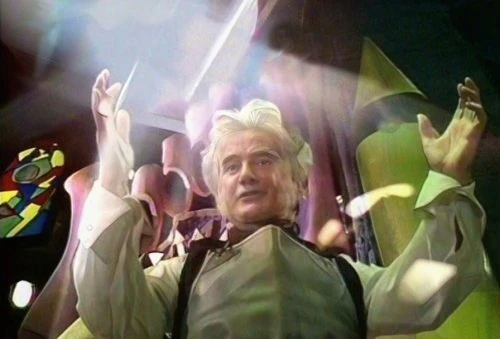
The show's narrative structure—Roland’s descent into fantasy, rise to reluctant leadership, fall from grace, and eventual return to reality—mirrors a classic hero’s journey, but filtered through the lens of 1970s urban alienation and psychological trauma. When Roland is crowned king, he quickly learns that power is isolating and unmanageable; his subjects’ love is fickle, and they soon turn on him. Only through failure and banishment is he able to return to the real world changed, not triumphant, but wiser and emotionally stronger.
HTV spared no expense, with a reported £300,000 budget (a considerable sum for the time) and nine months of casting before selecting the young Philip Da Costa, who gives a remarkably layered performance. At just 16, Da Costa carries the weight of the series with sensitivity and depth, grounding the series’ outlandish visuals with believable emotional resonance.
In 1977, Da Costa told TV Times magazine that he was unsure whether he wanted to carry on acting. The son of a retired antique dealer, he was already a veteran of eight years acting experience but candidly said, "There are moments when it is very boring. But it is better than sitting in a classroom all day. I would prefer to be a sound engineer", (his brother David Da Costa owned well-established sound workshops). Phil made that decision and became a music producer songwriter, engineer, programmer and mixer and is known for working with a diverse range of artists including The Military Wives, Darius, Vanessa Mae, Bond, Jaki Graham, Take That, Sir Tom Jones, Dame Shirley Bassey, Mick Fleetwood, Edwin Starr, Lisa Stansfield and Lulu among many others.
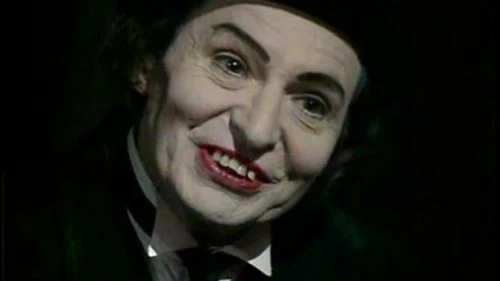
The supporting cast features familiar faces from British television—Talfryn Thomas as the enigmatic Vein, Fulton Mackay as the terrifying Hawkspur, Milton Johns as the bureaucratic Hawker, and Angela Richards as the witch-like June. All lean into their grotesque fantasy counterparts with a theatricality that enhances the show’s unsettling tone.
Visually, King of the Castle makes bold choices, with its dimly lit sets, distorted architecture, and theatrical costuming creating an oppressive and otherworldly atmosphere. It often feels closer to the avant-garde than typical children's programming—one can see shades of Alice in Wonderland, The Cabinet of Dr. Caligari, or even Brazil in its stylised world.
While it may have been marketed for “family viewing,” King of the Castle never panders to its audience. It challenges them. It’s a rare children's series that wrestles with serious themes—identity, authority, abandonment, and emotional resilience—through a surrealist lens. It’s not comforting, and it’s certainly not simple, but it’s deeply affecting.
Rating: ★★★★☆
Seen this show? How do you rate it?
Seen this show? How do you rate it?
Published on August 14th, 2025. Written by Laurence Marcus for Television Heaven.


